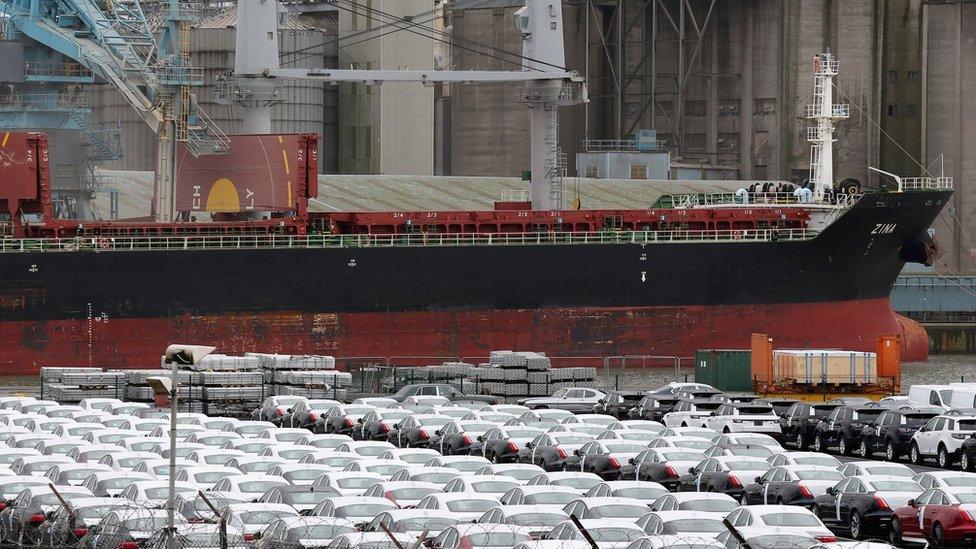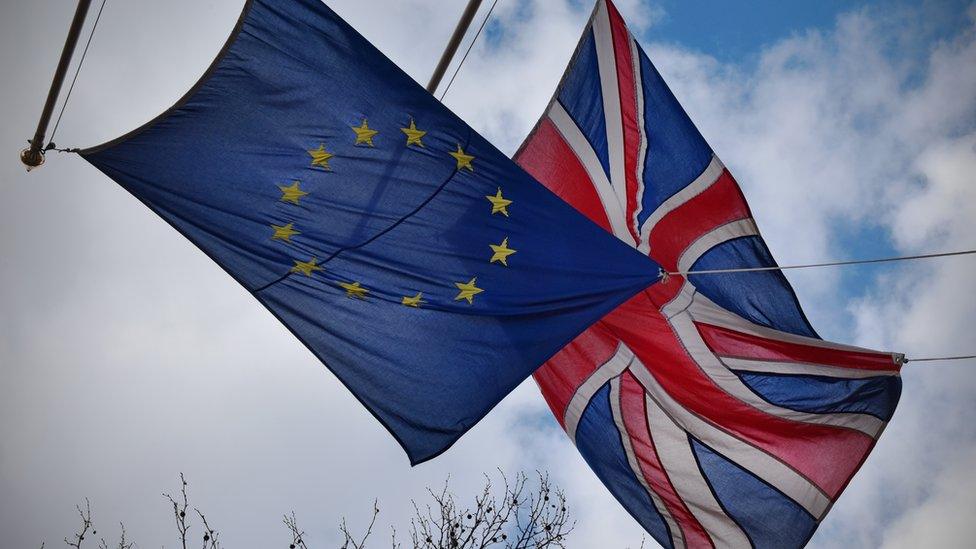'Economists for Brexit' back campaign to leave EU
- Published

A group of eight influential economists have thrown their support behind the Leave campaign in the UK's referendum on EU membership.
The group, Economists for Brexit, claim the UK economy would be boosted by 4% outside the EU.
But the Britain Stronger In Europe campaign said their economic model would be "the worst possible alternative".
It is the first time a group of economists have publicly backed Brexit.
The economic arguments follow several warnings against the UK leaving the EU from organisations including the International Monetary Fund (IMF) and the Organisation for Economic Co-operation and Development (OECD).
The report's authors include Patrick Minford, a former adviser to Margaret Thatcher, and Gerard Lyons, a former chief economist at Standard Chartered and now an adviser to the London Mayor, Boris Johnson, who is campaigning for Britain to leave the EU.
Prof Minford, professor of applied economics at Cardiff University, said: "Our analysis shows that walking away from the EU, not negotiating a new agreement with the EU while getting rid of EU trade barriers will bring about a 4% of GDP gain to the economy, consumer prices will fall about 8%, and our hugely competitive services sector will take the place of diminishing manufacturing output."
No need for trade deal
He argued that the UK would not need a new trade agreement if it left the EU because 70% of exports were traded outside the bloc under WTO rules.
"The remaining 30% would also become subject to WTO rules and would be sold to the EU subject to its general tariffs which average around 4%, in the same way as exports from Japan or the US," Prof Minford said.
The group, which also includes Roger Bootle, founder of Capital Economics, said that leaving the EU could cut unemployment by 75,000.
Dr Lyons said that staying in Europe would increase risks for financial services and the City of London.
A spokesperson for Britain Stronger In Europe said: "Treasury analysis shows that trading under WTO rules would be the worst possible alternative to EU membership, seeing households £5,200 worse off and a public spending black hole of £45bn.
"The Treasury also says this model will see the sharpest price rises, as new tariffs on goods, including 10 per cent on cars and 36.1 per cent on dairy products, would be imposed."
- Published30 December 2020

- Published17 April 2016
- Published12 April 2016
